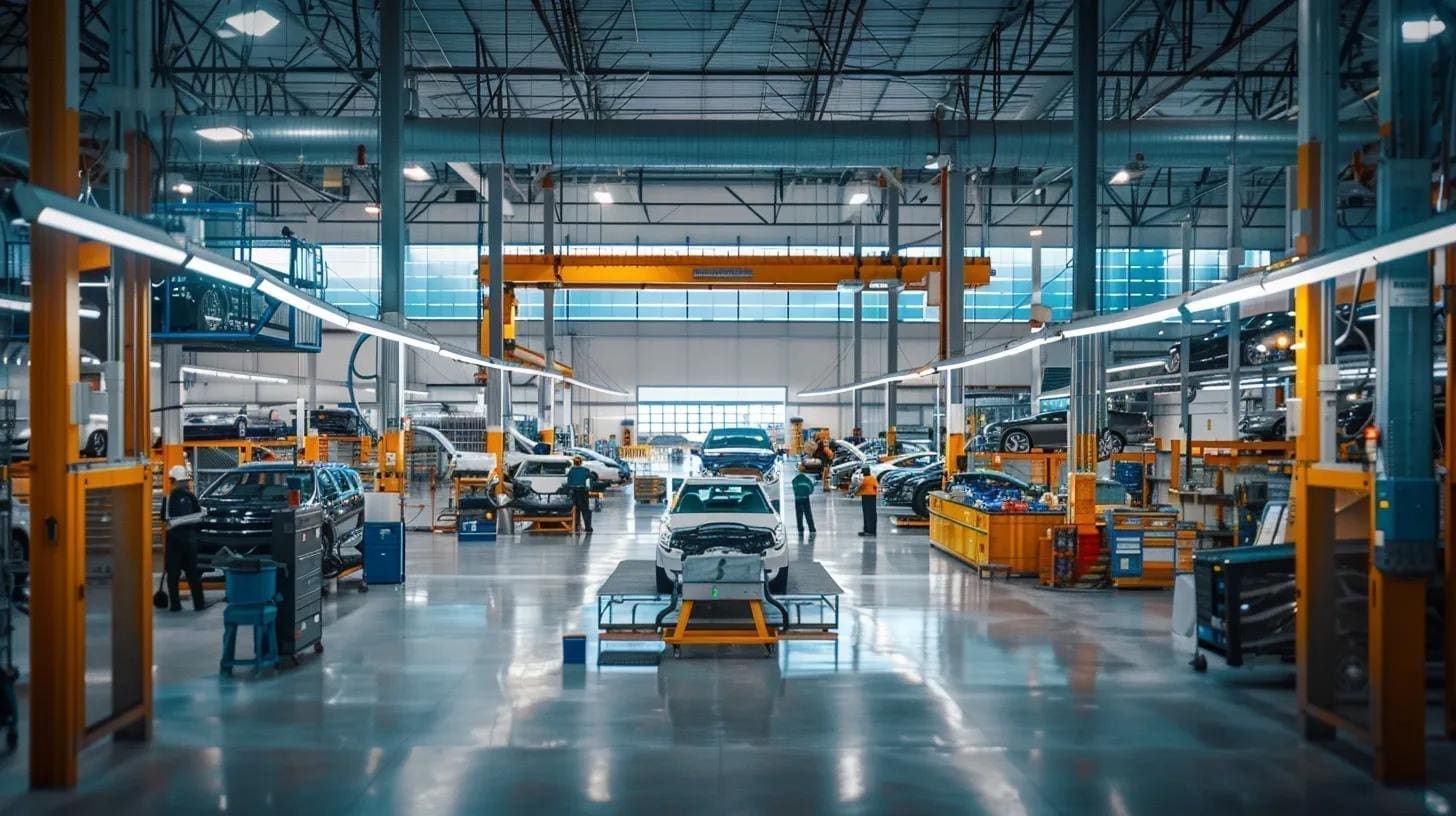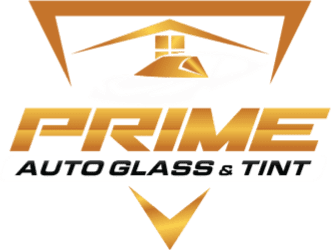Auto glass repairs are vital for ensuring vehicle safety and clear visibility after accidents or damage from debris and ultraviolet exposure. Prime Auto Glass & Tint offers both mobile auto glass repair and in-shop repair options, each with its own benefits and challenges. This article compares these services in terms of features, cost, time, convenience, safety, and customer satisfaction to help vehicle owners in the Ottawa-Gatineau area decide which option best suits their needs.
What Is Mobile Auto Glass Repair and How Does It Work?
Mobile auto glass repair involves a certified technician coming directly to the customer’s location to repair or replace damaged windshields or auto glass. The technician brings specialized equipment and resin-based repair kits to fix cracks or chips on site. This service is ideal for emergency situations when it is unsafe to drive the vehicle. Customers book appointments online or by phone, and upon arrival the technician assesses the damage and uses resin with ultraviolet curing to restore the windshield’s integrity while minimizing downtime.
What Are the Main Features of Mobile Auto Glass Repair?
The service is characterized by its portability, use of high-strength resin, specialized curing lights, and precision tools to ensure repairs meet safety standards. It often covers emergency repairs, meaning that even if damage hinders driving, it can be promptly addressed at a convenient location. Modern mobile services also include digital inspection systems and temporary insurance claim support, ensuring that the process is efficient, documented, and meets warranty requirements.
How Do You Schedule and Prepare for Mobile Auto Glass Repair?
Scheduling is straightforward—customers can book online or by phone. Prior to the technician’s arrival, it is recommended that the area around the damage is clean, personal belongings are removed from close to the windshield, and a secure spot is provided for the repair. Clear communication about insurance, deductibles, and repair costs helps expedite the process and ensures that the technician can deliver high-quality service.
What Are the Advantages of Mobile Auto Glass Repair?
Key advantages include convenience, as customers do not need to travel to a shop, and quick response times that reduce the risk of further damage. The service is particularly useful for busy individuals and those facing emergency repair situations. Overall, mobile repairs emphasize safety, quality, and a quick turnaround.
What Are the Limitations and Disadvantages of Mobile Auto Glass Repair?
Mobile repairs are best suited for minor to moderate damage. Extensive cracks or structural damage might require a full in-shop replacement where specialized equipment is available, and adverse weather conditions can sometimes affect the resin curing process. Additionally, high demand in some regions may lead to scheduling delays.
What Are In-Shop Auto Glass Services and What Should You Expect?

In-shop auto glass services require the customer to bring the vehicle to a dedicated facility equipped with specialized tools and controlled environments suited for complex repairs or replacements. Technicians use advanced diagnostic tools and follow standardized procedures to ensure that repairs meet manufacturer and industry safety standards. Customers can expect a detailed damage assessment, precise calibration of new windshields if needed, and adherence to stringent guidelines.
What Specialized Equipment and Facilities Are Used in In-Shop Services?
In-shop repairs utilize computerized diagnostic tools, precision cutting machines, and curing ovens that control temperature and humidity for optimal resin curing. Additional equipment includes ADAS calibration devices and high-definition imaging systems to document the repair process thoroughly. Multiple workstations and a team of certified technicians help ensure each repair is performed meticulously and meets quality control standards.
How Does the in-Shop Repair or Replacement Process Work?
The process begins with an inspection to determine the extent of damage. For minor repairs, technicians apply resin under controlled conditions using ultraviolet lighting or heat treatment. For replacements, the damaged windshield is removed and the new one is fitted and secured with advanced adhesives. After installation, the vehicle undergoes rigorous safety checks, including any necessary recalibrations of advanced driver assistance systems (ADAS).
What Are the Benefits of Choosing In-Shop Auto Glass Services?
In-shop services provide comprehensive repair or replacement options with enhanced precision. The controlled environment ensures optimal resin curing or fabrication of the windshield, leading to improved durability and longevity. Additional benefits include thorough safety inspections, ADAS recalibrations, expert consultations, and detailed damage assessments, all contributing to a robust repair outcome.
What Are the Drawbacks of in-Shop Auto Glass Services?
A key drawback is the need for customers to arrange transportation, as the vehicle must remain at the shop during the repair process. Repairs may take longer due to scheduling, complexity, and additional post-repair calibrations, and in-shop services can sometimes be more expensive due to the higher level of technical intervention.
How Do Mobile and in-Shop Auto Glass Repairs Compare on Cost?
Cost differences between mobile and in-shop repairs depend on damage extent, type of repair required, and additional services such as ADAS calibration. Mobile repairs may incur travel fees and slightly higher labor rates, while in-shop repairs sometimes benefit from bulk pricing and economies of scale. Insurance policies may cover both options, though deductibles and coverage details can vary based on the service model and damage complexity.
What Factors Influence the Cost of Mobile Auto Glass Repair?
Pricing for mobile repairs is influenced by the damage size, quality of resin and adhesives used, and technician travel distance. Emergency service fees and regional demand can also affect the overall cost, which tends to be higher when immediate response is needed. Despite this, the convenience factor often offsets the incremental cost.
How Does in-Shop Auto Glass Repair Pricing Differ?
In-shop repairs often have a transparent pricing model based on extensive damage assessments. Although the base cost might be lower due to standardized processes, more complex repairs—especially those involving complete windshield replacements and ADAS recalibrations—can increase the price significantly.
Does Insurance Cover Mobile and in-Shop Auto Glass Repairs Equally?
Insurance coverage is generally similar for both types of repairs if safety standards are met, but some policies might favour in-shop repairs for extensive damage. Customers should verify policy details and deductibles with their insurers to understand coverage differences.
Mobile vs. In-Shop Auto Glass Repair: Time & Convenience Compared

Time and convenience are critical considerations. Mobile repairs generally offer a faster turnaround since technicians come directly to the vehicle, allowing most minor repairs to be completed within a few hours. In contrast, in-shop repairs require vehicle drop-off and waiting periods, which can extend the overall repair time. The choice depends on whether immediate service or a controlled, detailed repair process is the priority.
How Long Does Mobile Auto Glass Repair Typically Take?
Most mobile repairs are completed within 30 minutes to a couple of hours. Small chips and minor cracks are typically fixed in under an hour, while more complex damage may take longer due to additional resin application and curing time.
What Is the Average Time for in-Shop Auto Glass Repair or Replacement?
In-shop repair times range from 1 to 3 hours for minor repairs and can extend to several hours or even a full day for windshield replacements that require extra calibrations. The process, while longer, ensures that repairs are thorough and meet all safety standards.
How Does Convenience Impact the Choice Between Mobile and in-Shop Services?
Mobile repairs maximize convenience by eliminating the need to transport the vehicle, which is especially beneficial in emergencies or adverse weather conditions. In-shop repairs, though more precise, require additional effort from the customer to leave the vehicle at a shop for an extended period.
What Are the Safety and Quality Considerations for Mobile vs. In-Shop Auto Glass Repair?
Both repair methods prioritize safety and quality by adhering to manufacturer standards and using high-quality materials. Mobile services depend on rigorous technician training and certified materials to achieve safety levels comparable to in-shop repairs. In-shop repairs benefit from controlled conditions, which allow for detailed quality control and post-repair inspections to ensure long-term safety.
Is Mobile Auto Glass Repair Safe and Reliable?
When performed by certified technicians using industry-approved methods, mobile repairs are safe and reliable. Documented repair processes, quality resin and adhesives, and proper technician training ensure that on-site repairs meet stringent safety benchmarks.
How Does in-Shop Repair Ensure Quality and Safety?
In-shop repairs leverage a controlled environment, advanced diagnostic tools, and precise machinery to guarantee quality. Post-repair safety checks, including ADAS recalibration, and strict adherence to manufacturer guidelines contribute to high repair reliability and longevity.
What Certifications and Guarantees Should Customers Look For?
Customers should seek services with certifications from recognized bodies such as the Auto Glass Safety Council (AGSC) and look for warranties on labor and materials. Proof of technician certification, comprehensive after-service support, and proper documentation for insurance claims are key indicators of a provider’s commitment to quality.
How to Choose the Right Auto Glass Repair Service for Your Needs?

Selecting the ideal repair service involves considering factors such as convenience, cost, repair time, and safety standards. Vehicle owners should determine whether their specific damage requires an immediate mobile repair or a more detailed in-shop replacement. Reviews, testimonials, and certifications can also help guide this decision.
What Factors Should Influence Your Choice Between Mobile and in-Shop Services?
Key influences include the severity of the damage, overall cost, proximity to a repair facility, and time constraints. Mobile repairs are best for minor or emergency issues, while in-shop services are recommended for extensive or complex damage requiring advanced diagnostics and calibration.
When Is Mobile Auto Glass Repair the Best Option?
Mobile repair is ideal for situations where a quick turnaround is necessary and the damage is moderate. It is especially useful for busy professionals or in conditions where travelling to a shop is inconvenient or risky.
When Should You Opt for in-Shop Auto Glass Services?
In-shop services are preferable for extensive damage or when a complete windshield replacement is necessary. They are also recommended when repair work requires advanced recalibration or detailed safety inspections to ensure optimal long-term performance.
What Do Customers Say About Mobile and in-Shop Auto Glass Repair Services?
Customer experiences highlight that mobile repairs are valued for their speed and convenience, particularly in emergencies. In contrast, in-shop services are praised for their thorough diagnostics, precision, and additional safety measures. Reviews emphasize technician professionalism, the quality of materials used, and the positive impact on vehicle safety and resale value.
How Do Customer Experiences Differ Between Mobile and in-Shop Repairs?
Customers appreciate mobile repairs for their minimal disruption and fast service, while those opting for in-shop repairs value the detailed attention and controlled repair environment that leads to higher technical quality.
What Are Common Customer Concerns and How Are They Addressed?
Frequent concerns include repair reliability, potential for reinjury if repairs are not properly conducted, and overall service costs. Both service types address these issues through detailed service documentation, technician certifications, transparent pricing, warranties, and follow-up support.
How Can Customer Testimonials Help You Decide?
Testimonials provide real-world insights into service performance regarding cost, convenience, and safety. They help new customers decide if a mobile or in-shop repair is better suited to their specific needs by sharing experiences from other vehicle owners.
Table: Comparison of Mobile vs. In-Shop Auto Glass Services
Before proceeding further, consider the following table comparing key attributes:
| Attribute | Mobile Auto Glass Repair | In-Shop Auto Glass Services |
|---|---|---|
| Service Location | On-site at customer’s location | At a specialized repair facility |
| Repair Time | Generally faster, 30 minutes to 2 hours | Longer, several hours to a full day |
| Convenience | High, no need to arrange transportation | Lower, requires vehicle drop-off and pick-up |
| Equipment | Portable resin curing kit, UV light | Advanced machinery, controlled environment, ADAS calibration |
This table highlights the differences in cost, convenience, and technical execution. It is advisable to consider your personal needs and the nature of the damage when choosing a service.
Frequently Asked Questions
Q: What is the primary benefit of mobile auto glass repair? A: It offers high convenience and rapid response by performing repairs on-site, saving time and reducing further damage.
Q: How does in-shop auto glass repair ensure safety? A: It uses advanced diagnostic tools, controlled curing environments, and comprehensive safety inspections including ADAS calibration for optimal results.
Q: Are there significant cost differences between mobile and in-shop services? A: Yes, costs vary based on damage severity and service location. Mobile repairs may include travel fees, while in-shop services can benefit from economies of scale.
Q: Can both repair options be covered by insurance? A: Many insurance policies cover both types, though deductibles and details may differ. It is best to check with your provider.
Q: How can I decide which service is right for my vehicle? A: Evaluate the extent of the damage, repair urgency, convenience, and technical requirements. Reviews and consultations with certified technicians can further guide your choice.
Final Thoughts
Both mobile and in-shop auto glass repair services offer distinct advantages. Mobile repairs are best for convenience and urgent minor damage, while in-shop services provide a controlled environment ideal for complex repairs and replacements. By considering factors such as cost, repair time, and safety, vehicle owners in the Ottawa-Gatineau area can choose the repair method that best restores their auto glass effectively. Prime Auto Glass & Tint remains a trusted provider committed to delivering safe, high-quality, and reliable service for all repair needs.



